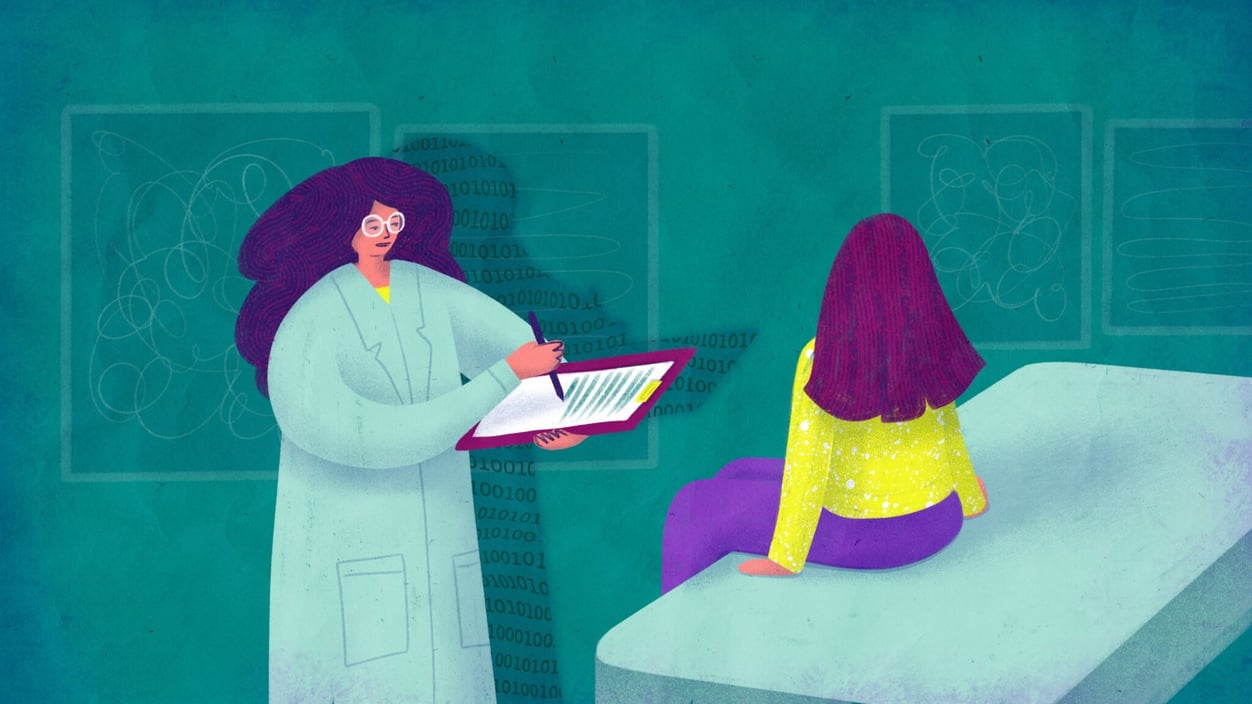Artificial Intelligence An inside look at Nuance's pricing

MOLLY FERGUSON FOR STAT
How much is a happy doctor worth? Hospitals turn to Nuance Communications' technology, which automatically generates medical documentation from audio recorded during patient encounters, to reduce the burden on overworked clinicians. But that technology can be very expensive, and as STAT's Brittany Trang reports, the investment required isn't the same across the board.
A spokesperson for Microsoft-owned Nuance attributes this to tiered pricing by which the cost for the technology "varies depending on the size of the health system and the number of users that will be set up with the system."
For the straightforwardness of that response, it's still causing confusion and frustration among health system executives who told Brittany there is little transparency into pricing. Some — but not all — said they are being charged hefty onboarding fees or for additional licenses they aren't using. This could prove a point of friction as Microsoft and Nuance hope to seize the current momentum around artificial intelligence.
"I'm sorry to hear that this is one of the companies that's not, if you will, offering consistent pricing for their clients. At some point, that does hurt their reputation," said David Muntz, a health tech consultant at Starbridge Advisors.
Get the details in Brittany's exclusive.
digital health
Can evidence reviews be more efficient?
As digital tools pick up steam, health systems and payers often hit roadblocks thinking about how to evaluate them. "Dozens of frameworks have been proposed to assess evidence," writes a working group that has proposed Evidence DEFINED, yet another framework they say addresses many of the shortcomings of previous efforts.
The authors emphasize the speed of their proposed four-step process, which begins by screening interventions for "absolute requirements" like privacy and security standards and proceeds to "a streamlined approach… avoiding information gathering that may have limited value." Absent from the plan is the common practice of creating lengthy feature lists for products, which can take more time and may produce misleading assessments.
"There is often a wide gap between the minimum level of effort required to claim defensibly that a product has a given feature, and the effort required to develop the feature to a degree that contributes meaningfully to improved clinical outcomes," write the authors, including leaders from Elevance Health, the Digital Medicine Society, and academic medical centers.
Telehealth
Opinion: DEA's proposed telehealth rules for addiction treatment are too stringent
During the Covid-19 pandemic, the Drug Enforcement Agency loosened rules for many controlled substances, which allowed clinicians to prescribe medication that treats opioid use disorder using telehealth. With the official public health emergency now over, the agency has proposed to extend some allowances, while adopting "appropriate safeguards." Under the new rules, first-time patients will be able to receive a 30-day supply of buprenorphine over telehealth, after which they will need to receive treatment in person.
In a STAT First Opinion, Danny Nieves-Kim, who works for addiction treatment company Bicycle Health, argues that "now is the time for advocates to demand the DEA enshrine telehealth care."
"Reverting back to primarily in-person care for opioid use disorder will only lead to more dismal statistics, eclipsing those promising recovery numbers bolstered by telehealth treatment," he writes.
Read more here.


No comments